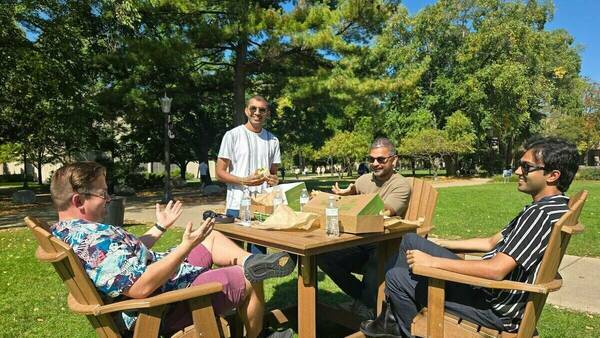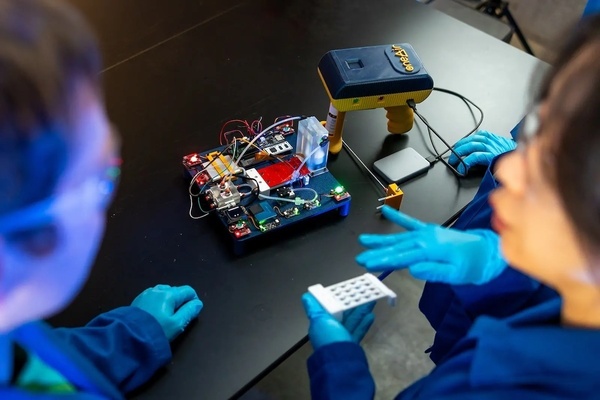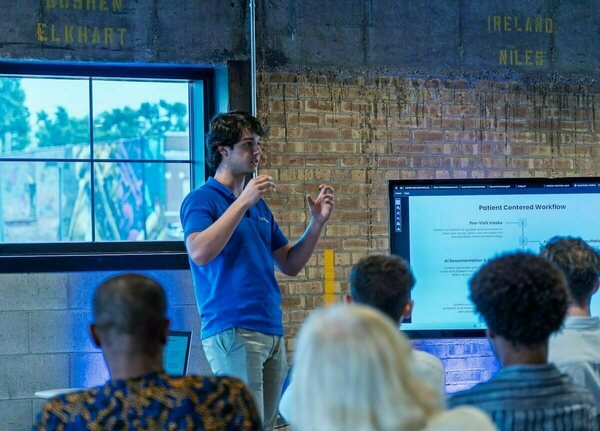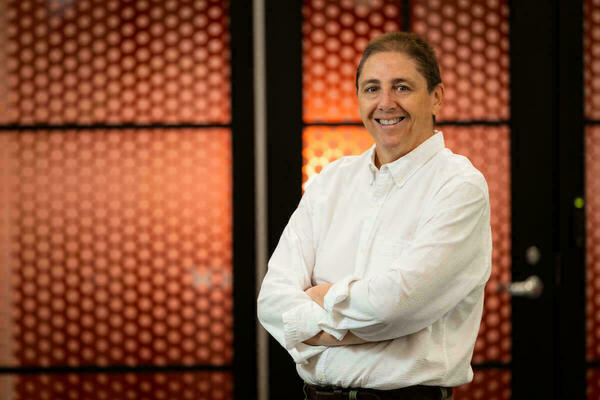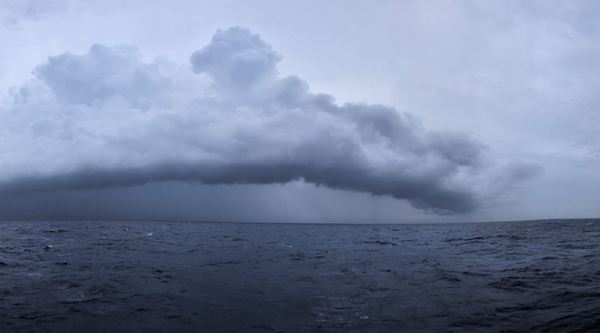Notre Dame Law School’s Religious Liberty Clinic Defends Religious Freedom Through Asylum
Religious persecution is a reality for millions of individuals worldwide. For many, the only option is to leave their homes and seek international protection through asylum, a legal recourse for people fleeing persecution in their home countries based on race, religion, nationality, membership in a particular social group, or political opinion. Through the work of Notre Dame Law School’s Lindsay and Matt Moroun Religious Liberty Clinic, students play a crucial role in advocating for these individuals.
Earlier this year, the Clinic successfully secured asylum for a young Uyghur Muslim who faced severe persecution in her home country of China. The Uyghurs, a predominantly Muslim ethnic minority group in China, have been subject to mass detentions, forced labor, and cultural erasure—actions that have been condemned internationally as crimes against humanity. Working alongside Clinic Director John Meiser, students prepared a number of materials in support of the young woman’s asylum application and helped represent her in proceedings before the immigration office in Chicago.
This fall, under the supervision of attorneys Kimberlie Orr and Domenic Canonico, students in the Clinic have advocated in support of asylum for two individuals fleeing persecution in other countries—in one case, representing a Hazara Muslim from Afghanistan seeking refuge from the Taliban and ISIS, and, in the other, representing an Iranian Christian convert who faces apostasy charges in a country where converting away from Islam is punishable by death. While one case remains pending, in the other, the Clinic secured protection under the Convention Against Torture, preventing the individual from being returned to a country where torture or death would be almost certain.
These cases provide students first-hand opportunities to defend individuals whose faith places them in grave personal danger and a chance to see the critical role that legal advocacy plays in securing freedom for those suffering from persecution. They also offer students valuable experience practicing asylum law, allowing them to participate in every phase of the legal process—from initial client consultations to preparing filings, working with expert witnesses, and representing clients in immigration proceedings.
“These cases exemplify the Clinic’s holistic approach, combining rigorous legal preparation with compassion for clients who have endured unimaginable hardships for trying to live according to their faith. Each victory not only transforms the life of the individual client but also challenges global systems that often fail to protect those fleeing persecution,” said Orr.
For some students, including third-year law students Rohan Vaidya and Rania Khamees, that experience has included the opportunity to personally appear alongside Orr in immigration court to advocate for their clients before an immigration judge.
“Getting to represent a client fleeing religious persecution in immigration court was a truly rewarding experience,” said Vaidya. “Lawyers in asylum cases can make a real difference in people’s lives. The clinic has provided me with the necessary skills to continue this important work as I embark on my legal career.”
“The way we treat and show up for others in need is one of the greatest expressions of religious devotion there is,” said Khamees. “The Clinic gives me the opportunity to meet and advocate for those who seek a life free of religious persecution from across the globe, a privilege this experience has taught me not to take for granted.”
Canonico observed that the Clinic’s work for religious asylum also fills a significant need. “The promise of asylum for religious refugees is one of the most important ways in which our nation lives up to its founding ideal of freedom for all, regardless of his or her beliefs,” Canonico said. “But even for true victims of persecution, asylum is difficult to obtain, especially without the help of a lawyer. That's what makes the Clinic's work so important.”
Through their work in the Clinic, students not only help protect individuals fleeing religious persecution but also deepen their understanding of the global landscape of religious freedom and the challenges that persecuted groups face worldwide. Students have contributed to a broad range of projects confronting international religious persecution outside the U.S. asylum system, including drafting UN reports, preparing policy briefs for congressional hearings, and collaborating with NGOs focused on addressing religious persecution.
Gloria Wertjes, a second-year law student, expressed gratitude for the opportunity to serve religiously persecuted people in need. “I am humbled to attend a law school that makes it part of its institutional mission to serve and protect ‘the least of these,’” said Wertjes.
“Our work on behalf of asylum seekers and communities facing religious persecution represents everything that is at the heart of the Religious Liberty Clinic,” said Meiser. “We are here to serve those suffering from religious bigotry and oppression, to defend and support them, regardless of their beliefs. And we are here to train, educate, and form young lawyers by giving them firsthand opportunities to do the same. That calling is never greater than in defense of people whose very lives are in danger simply because of their religion. I am immensely proud of the dedication of our attorneys and our students to this cause.”
Originally published by at religiousliberty.nd.edu on December 13, 2024.
Latest Research
- Postdoc Appreciation Week: Meet three postdoctoral scholars driving research and innovation at Notre DameDuring Postdoc Appreciation Week, the Graduate School and Office of Postdoctoral Affairs celebrate our Notre Dame postdocs, their invaluable contributions, and the lasting impact they have on our drive to be a force for good in the world. To understand the full scope of the talented postdocs that Notre Dame has attracted and the research they are conducting, meet three of them.
- Notre Dame opens applications for 2026 Provost’s Postdoctoral Fellowship programThe University of Notre Dame is accepting applications for the next cohort of…
- Fighting for Better Virus DetectionAn electronic nose developed by Notre Dame researchers is helping sniff out bird flu biomarkers for faster detection and fewer sick birds. Read the story
- Notre Dame’s seventh edition of Race to Revenue culminates in Demo Day, a celebration of student and alumni entrepreneurship…
- Managing director brings interdisciplinary background to Bioengineering & Life Sciences InitiativeThis story is part of a series of features highlighting the managing directors of the University's strategic initiatives. The managing directors are key (senior) staff members who work directly with the…
- Monsoon mechanics: civil engineers look for answers in the Bay of BengalOff the southwestern coast of India, a pool of unusually warm water forms, reaching 100 feet below the surface. Soon after, the air above begins to churn, triggering the summer monsoon season with its life-giving yet sometimes catastrophic rains. To better understand the link between the formation of the warm pool and the monsoon’s onset, five members of the University of Notre Dame’s Environmental Fluid Mechanics Laboratory set sail into the Bay of Bengal aboard the Thomas G. Thompson, a 274-foot vessel for oceanographic research.








